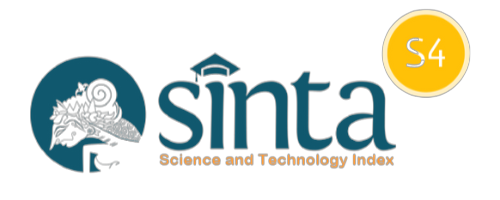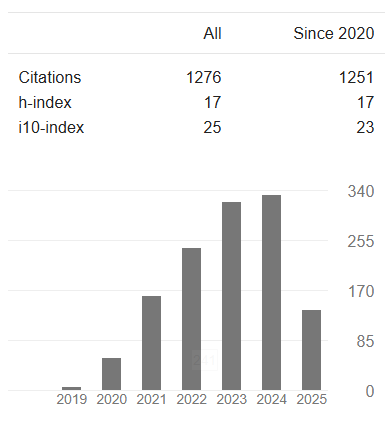Sharia Hybrid Contract Compliance of Islamic Microfinance Institutions in Jepara Regency
DOI:
https://doi.org/10.14421/EkBis.2020.4.2.1272Keywords:
Sharia Complience, Hybrid Contract, Islamic Microfinance.Abstract
The purpose of this study was to examine the sharia compliance of the Hybrid Contract of the Syriah Microfinance Institution (LKMS) in Jepara Regency. This type of research is a Field Research, using a content analysis approach; to interpret data not as a series of physical events, but as symbolic symptoms to reveal the meaning contained in a text, and the understanding of the message presented. The research object selected was BMT in Jepara Regency which applies contract and unique hybrid products, namely BMT Mitra Muamalah (Mitramu) which has the product "Gold Pawn" and BMT Harapan Bersama (HARBER) which has a Musyarakah Mutanaqishah (MMq) product. The results showed that the Musyarakah Mutanaqishah (MMq) financing agreement at BMT Harapan Bersama (HARBER) Jepara was in accordance with the DSN-MUI fatwa NO: 73 / DSN-MUI / XI / 2008. Rahn's contract which is run by BMT Mitra Muamalah Jepara is in accordance with the DSN-MUI Fatwa Number: 25 / DSN-MUI / III / 2002, and Fatwa DSN-MUI Number: 26 / DSN-MUI / III / 2002.. Weak internal and external supervision at Cooperative entities, the implementation of hybrid contracts in the field is prone to deviations and falling to "Riba".
Downloads
References
Agustianto. (2014). Reaktualisasi dan Rekontekstualisasi Fikih Muamalah Ke-Indonesiaan: Upaya Inovasi Produk Perbankan dan Keuangan Syriah. Ikatan Ahli Ekonomi Islam (IAEI).
Ainiyah, A., & Qulub, A. S. (2019). KEPATUHAN SYARIAH (SHARIA COMPLIANCE) AKAD MUDHARABAH DI BMT BIM. Jurnal Ekonomi Syariah Teori Dan Terapan, 6(6), 880–898.
Anwar, A. Z., & Edward, M. Y. (2016). Analisis Syariah Compliance Pembiayaan Murabahah Pada Gabungan Koperasi Bmt Mitra Se-Kabupaten Jepara. Jurnal Ekonomi Islam, 2(1), 256–269.
Arbouna, M. B. (2007). The Combination of Contracts in Shariah: A Possible Mechanism for Product Development in Islamic Banking and Finance. Thunderbird International Business Review, 49(5), 630–631. https://doi.org/10.1002/tie
Arfan, A. (2017). Tipologi Multiakad Dalam Produk Fatwa Dewan Syariah Nasional-Majelis Ulama Indonesia Perspektif Teori Dan Batasan Multiakad Al ‘Imrani. ULUL ALBAB Jurnal Studi Islam, 18(2), 269. https://doi.org/10.18860/ua.v18i2.4787
Azmi, N. N. I. N. M., & Thaker, M. A. B. M. T. (2020). Literature Survey on Islamic Microfinance. Global Review of Islamic Economics and Business, 8(1), 023. https://doi.org/10.14421/grieb.2020.081-03
Balgis, P. D. (2017). Akad Musyarakah Mutanaqisa: Inovasi Baru Produk Pembiayaan Bank Syariah. JESI (Jurnal Ekonomi Syariah Indonesia), 7(1), 14. https://doi.org/10.21927/jesi.2017.7(1).14-21
Basyariah, N. (2018). Analisis Implementasi Pembiayaan Musyarakah Mutanaqishah Pada Perbankan Syariah di Indonesia. Muqtasid: Jurnal Ekonomi Dan Perbankan Syariah, 9(2), 120. https://doi.org/10.18326/muqtasid.v9i2.120-133
Bonita, S. D., & Anwar, A. Z. (2018). Implementasi Syariah Compliance pada Akad Murabahah dan Ijarah (Studi Kasus Pada KSPPS BMT Fastabiq Jepara). JESI (Jurnal Ekonomi Syariah Indonesia), 7(2), 88. https://doi.org/10.21927/jesi.2017.7(2).90-99
CGAP. (2013). Focus-Note-Trends-in-Sharia-Compliant-Finanicial-Inclusion-Mar-2013. March, 1–11.
Denzin, N. K., & Lincoln, Y. S. (2013). Collecting and Interpreting Qualitative Materials-SAGE Publications, (p. 710).
Fatmawati, D. A., & Usnan. (2018). Audit Kepatuhan Syariah Melalui Peran Dewan Pengawas Syariah Pada PT. BPRS Dana Mulia Surakarta. Journal of Islamic Finance and Accounting, 1(2), 19–34.
Gazali, N., Halim, N. A., & Liza, P. (2017). Alternative profit rate shariah-compliant for islamic banking. Journal of Physics: Conference Series PAPER 890 012165.
Hammaad, N. (2005). Al-’uqud al-Murakkabah fi al-Fiqh al-Islamy. Dâr al-Qalam.
Herlyanto, F. D., & Oktavendi, T. W. (2019). Meretas Kinerja Maqashid Syariah Pada Bank Umum Syariah Indonesia. El Muhasaba: Jurnal Akuntansi, 10(1), 77. https://doi.org/10.18860/em.v10i1.5929
Imrani, A. bin M. bin A. (2006). Al-’uqûd al-Mâliyah al-Murakkabah: Dirâsah Fiqhiyyah Ta’shîliyah wa Tathbîqiyyah. Dâr Kunûz Eshbelia li al-Nasyr wa al-Tauzî’.
Indonesian Ministry of National Development Planning. (2019). Indonesia Islamic Economic Masterplan 2019-2024. In Deputy of Economy Indonesian Ministry of National Development Planning (Ed.), Indonesian Ministry of National Development Planning. Indonesian Ministry of National Development Planning.
Khudori, S. (2018). Analisis Kepatuhan Syariah Implementasi Prinsip Bagi Hasil pada Simpanan Mudharabah di KSPPS Binamas Purworejo. Jurnal Ekonomi Islam : At Tauzi’, 19(1), 1–17.
Kustin, B. (2015). Islamic (Micro) Finance: Culture, Context, Promise, Challenges. Bill & Mellinda Gates Foundation, August, 50. https://docs.gatesfoundation.org/Documents/Islamic (Micro) Finance Culture, Context, Promise, Challenges.pdf%0Awww.gatesfoundation.org
Mihajat, M. I. S. (2014). Hybrid Contract In Islamic Banking and Finance : A Proposed Shariah Principles and Parameters for Product Development. EBJM - Special Issue: Islamic Management and Business, 2(2), 89–100.
Miles, M. B., Huberman, A. M., & Saldaña, J. (2014). Qualitative Data Analysis: A Methods Saurcebook. In Third Edition Copyright © 2014 SAGE Publications, Inc. Sage Publications.
Mohammad Osmani, N., & Faruk Abdullah, M. (2010). Musharakah Mutanaqisah Home Financing : A Review of Literatures and Practices of Islamic Banks In Malaysia. International Review of Business Research Papers, 6(2), 272–282.
Murtadho, A. (2013). Model Aplikasi Fikih Muamalah Pada Formulasi Hybrid Contract. Al-Ahkam, 23(2), 125. https://doi.org/10.21580/ahkam.2013.23.2.19
Nurhadi. (2018). MAQASHID AMMAH DAN KHASHAH OPERASIONAL BANK SYARIAH. Jurnal Ekonomi Islam, 9(November), 152–168.
Nurnazli. (2014). PENERAPAN KAIDAH MAQÂSHID SYARIAH DALAM PRODUK PERBANKAN SYARIAH. Ijtimaiyya, 7(1), 43–63.
Obaidullah, M., & Khan, T. (2011). Islamic Microfinance Development: Challenges and Initiatives. SSRN Electronic Journal, 42–53. https://doi.org/10.2139/ssrn.1506073
Qureshi , et al., F. (2016). in Implementing Musharakah Mutanaqisah Islamic Home Financing in Malaysia. Journal of Islamic Financial Studies, 2(2), 45–54. https://doi.org/10.12785/jifs/020205
Rahman, T., Sudjana, N., & ZA, Z. (2016). ANALISIS KINERJA PERBANKAN DENGAN PENDEKATAN RGEC (RISK PROFILE, GOOD CORPORATE GOVERNANCE, EARNING, AND CAPITAL) UNTUK MENGETAHUI TINGKAT KESEHATAN BANK (Studi pada Bank BUMN dan Bank Pembangunan Daerah Periode 2012-2014). Jurnal Administrasi Bisnis (JAB), 35(1), 96–103.
Shafii, Z., Ali, N. A. M., & Kasim, N. (2014). Shariah Audit in Islamic Banks: An Insight to the Future Shariah Auditor Labour Market in Malaysia. Procedia - Social and Behavioral Sciences, 145(1), 158–172. https://doi.org/10.1016/j.sbspro.2014.06.023
Siddiqi, M. N. (2006). Islamic Banking and Finance in Theory and Practice: a Survey of State of the Art. Islamic Economic Studies, 13(2), 1–48.
Solé, J. (2007). Introducing Islamic Banks into Convensional Banking Syatem. International Monetary Fund (IMF).
Subky, K. H. M., Liu, J. Y., Muhammad Muzzammil, M. M., Mokhtar, Z. F., & Faizrakhman, A. (2017). The Implication of Musharakah Mutanaqisah in Malaysian Islamic Banking Arena: A Perspective on Legal Documentation. International Journal Of Management and Applied Research, 4(1), 17–30. https://doi.org/10.18646/2056.41.17-003
Susilo, E., & Anam, A. K. (2018). SHARIA COMPLIENCE AKAD BERBASIS NATURAL UNCERTAINTY CONTRACT ( NUC ) LEMBAGA KEUANGAN MIKRO SYARIAH DI KABUPATEN JEPARA. Al-Uqud: Journal of Islamic Economics, 2(1), 20–37.
Vejzagic, M. (2014). Ijarah Muntahia Bittamleek (IMB): A risk management perspective. Merit Research Journal of Accounting, Auditing, Economics and Finance Vol. 2 (1), 2(1), 1–7. http://www.meritresearchjournals.org/aaef/index.htm





























 This work is licensed under a
This work is licensed under a 